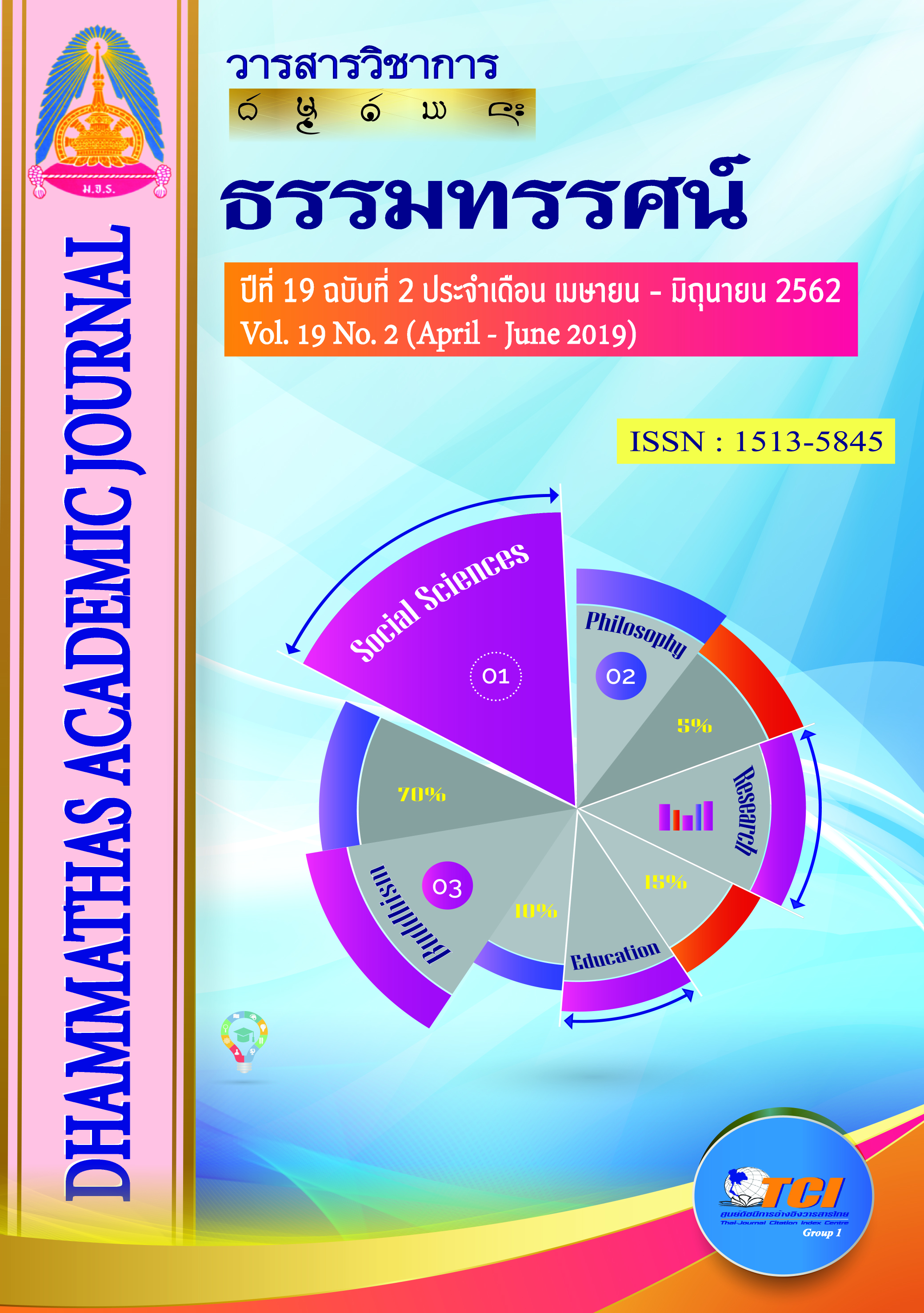Promotion of Personnel’s Morality, Ethics and Good Governance for Their Work Performance at Local Administrative Organization in the Northeastern Region
Main Article Content
Abstract
The objectives of the research were: 1) to study the promotion of morality, ethics and governance applied to performances of local administration organizations in the central northeastern provinces; 2) to find out the guidelines for promotion of morality, ethics and governance to be observed by the civil servants of the said organizations. The objectives of the research were 1) to study the promotion of morality, ethics and governance applied to performances of local administration organizations in the central northeastern provinces, and 2) to find out the guidelines for promotion of morality, ethics and governance to be observed by the civil servants of the said organizations. The samples comprised the presidents, permanent secretaries and staff members, totally 302 in number, of the Subdistrict Administration Organizations in the areas as mentioned. The research tool used to collect the data was the five-rating scale questionnaire, with validity of .87. The data were analyzed by such statistical devices as percentage, mean () and standard deviation (S.D.). The research results can be described as follows:
1. The civil servants’ attitude about the promotion of morality, ethics and governance applied to performances of local administration organizations in the central northeastern provinces was found, in an overall aspect, to exist at the ‘Much’ level, which could be classified into individual aspects in the following respective order: Morality at 4.00 (S.D. = .047). ethics at
3.99 (S.D. = .052) and good governance at
3.76 (S.D. = .93).
2. The promotion of morality, ethics and governance applied to performances of local administration organizations in the said areas was found to be divided into 8 measures as follows: 1) promotion of knowledge and positive attitude; 2) honoring and rewarding; 3) prototyping of good example; 4) establishment of clubs and networks; 5) arrangement of related activities; 6) public relations; 7) observation of other organizations’ functions and 8) promotion of studying and practicing religious teachings.

